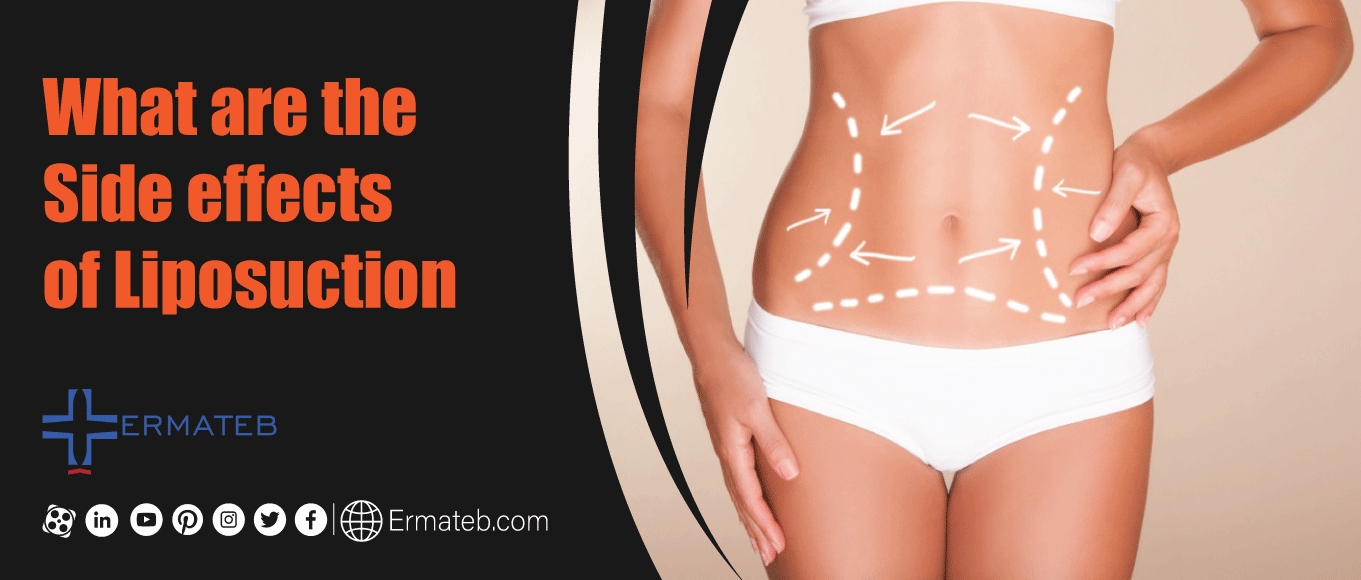
Liposuction is an operation in which suction is used to remove fat from different areas like the abdomen, hips, thighs, buttocks, arms, or neck and then reshapes them. This is called lipoplasty or body contouring too.
This type of operation is not suggested as a weight-loss method or alternative weight loss. For patients who are overweighted and need to lose weight exercising or bariatric procedures like gastric bypass surgery are better chances. Liposuction is only used for individuals who have too much body fat in different parts of their bodies.
Liposuction is usually used to remove fat from various areas of the body that haven't responded to diet and exercise, such as the:
• Abdomen
• Upper arms
• Buttocks
• Calves and ankles
• Chest and back
• Hips and thighs
• Chin and neck
In some cases, liposuction is useful for breast reduction or even cases of gynecomastia. Gaining weight is by increasing the size and volume of fat cells. The amount of removed fat depends on the volume of fat in that area.
The appearance of skin after the surgery varies on the patient. If the tone and elasticity of the skin are good the chance of having smooth skin is higher.
To be a suitable candidate for liposuction, you must be in good health without conditions that could complicate your surgery such as restricted blood flow, coronary artery disease, diabetes, or a weak immune system.
Risks
• Contour irregularities
The skin may appear bumpy, wavy, or withered due to uneven fat removal, poor skin elasticity, and unusual healing. These changes may be permanent. Damage beneath the skin from the thin tube (cannula) that's used during liposuction may give the skin a permanent spotted appearance.
• Fluid accumulation
Temporary pockets of fluid (seromas) can form under the skin. This fluid may need to be drained with a needle after surgery.
• Numbness
Patients may feel temporary or permanent numbness in surgery areas. Temporary nerve irritation is one of the possible happenings.
• Infection
Skin infections are rare but possible and dangerous. A severe skin infection may be life-threatening in most cases.
• Internal puncture
Rarely, a cannula that penetrates too deeply may puncture an internal organ. This may require emergency surgical repair.
• Fat embolism
Pieces of loosened fat may break away and become trapped in a blood vessel and gather in the lungs or travel to the brain. A fat embolism is a medical emergency because of life-threatening conditions.
• Kidney and heart problems
Shifts in fluid levels as fluids are being injected and suctioned out can cause potentially life-threatening kidney, heart, and lung problems.
• Lidocaine toxicity
Lidocaine is an anesthetic often administered with fluids injected during liposuction to help the management of pain. Although generally safe, in rare circumstances, lidocaine toxicity can occur, causing serious heart and central nervous system problems.
The total complication rate of liposuction is approximately 5%, and most of these complications are minor. However, studies have revealed that the deaths rate secondary to this procedure is as high as 1 in 5,000 surgeries.
• puncture wounds or injuries to other organs
• anesthesia complications
• burns from equipment, such as ultrasound probes
• nerve damage
• shock
• death
New research indicated that patients who get liposuction not only lose pounds, but also may be decreasing their risk of heart disease. Researchers studied levels of cholesterol, LDL, and, bad fatty acid called triglycerides in the blood of more than 300 patients who were undergoing liposuction and the results were good. But there are some downfalls to liposuction as well.
Fluid retention and swelling after the surgery can cause you to look bloated. As the swelling goes down, you can begin to see results. You may also notice that some of your skin is loose in the area treated with liposuction, fortunately, loose skin can firm up over time. Your skin may appear lumpy, wavy, or withered due to uneven fat removal, poor skin elasticity, and unusual healing. Immediately following liposuction, most patients will notice lumps and uneven areas on their bodies. These irregularities are perfectly normal and usually disappear throughout a small time, although it can sometimes take months. In some cases, the patient may have scars of Liposuction you can read more about Liposuction scars and their treatments here.
How to correct and prevent uneven areas in your belly after the liposuction?
· Consider Laser-Assisted Liposuction.
· Think About a Tummy Tuck. Tummy tucks are the most common surgery used to tighten the skin over the new smooth area, in order to eliminate rolls or any other skin irregularity caused by liposuction. Doctors can perform skin tightening procedures, such as arm lift or thigh lift, on almost any area of the body.
· Combine Liposuction and Fat Grafting.
· Wear a Compression Garment.
· Turn to kybella injections.
After lipoplasty by gaining weight, fat will be stored in deeper areas like around the liver or heart. This can be much more dangerous.
Permanent nerve damage and change of skin sensation are other possible long-term side effects. In the areas that were suctioned, patients may have bumpy or wavy skin that doesn’t go away.
• don’t have a lot of excess skin
• have good skin elasticity
• have good muscle tone
• have fat deposits that won’t go away with diet or exercise
• are in good physical shape and overall health
• aren’t overweight or obese
• don’t smoke
You can ask other questions about liposuction or bariatric surgeries. Our experts in ERMATEB'S group will help you to decide which procedure is more suitable for you.
ERMATEB'S group provides perfect offers for individuals who want to have various medical services.
ERMATEB'S experts will answer all of your questions free as soon as possible.
just contact us:
Visit our Twitter:
https://Twitter.com/Ermateben
Follow our Instagram:
Instagram.com/ermateb.en
Contact us via Email:
Info@ermateb.com



